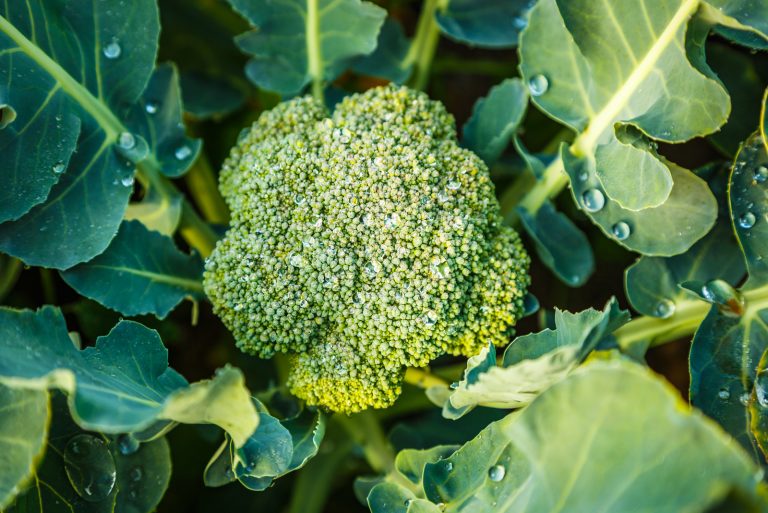How To Protect Soft Fruits From Birds, Pests, And Other Wildlife In Michigan
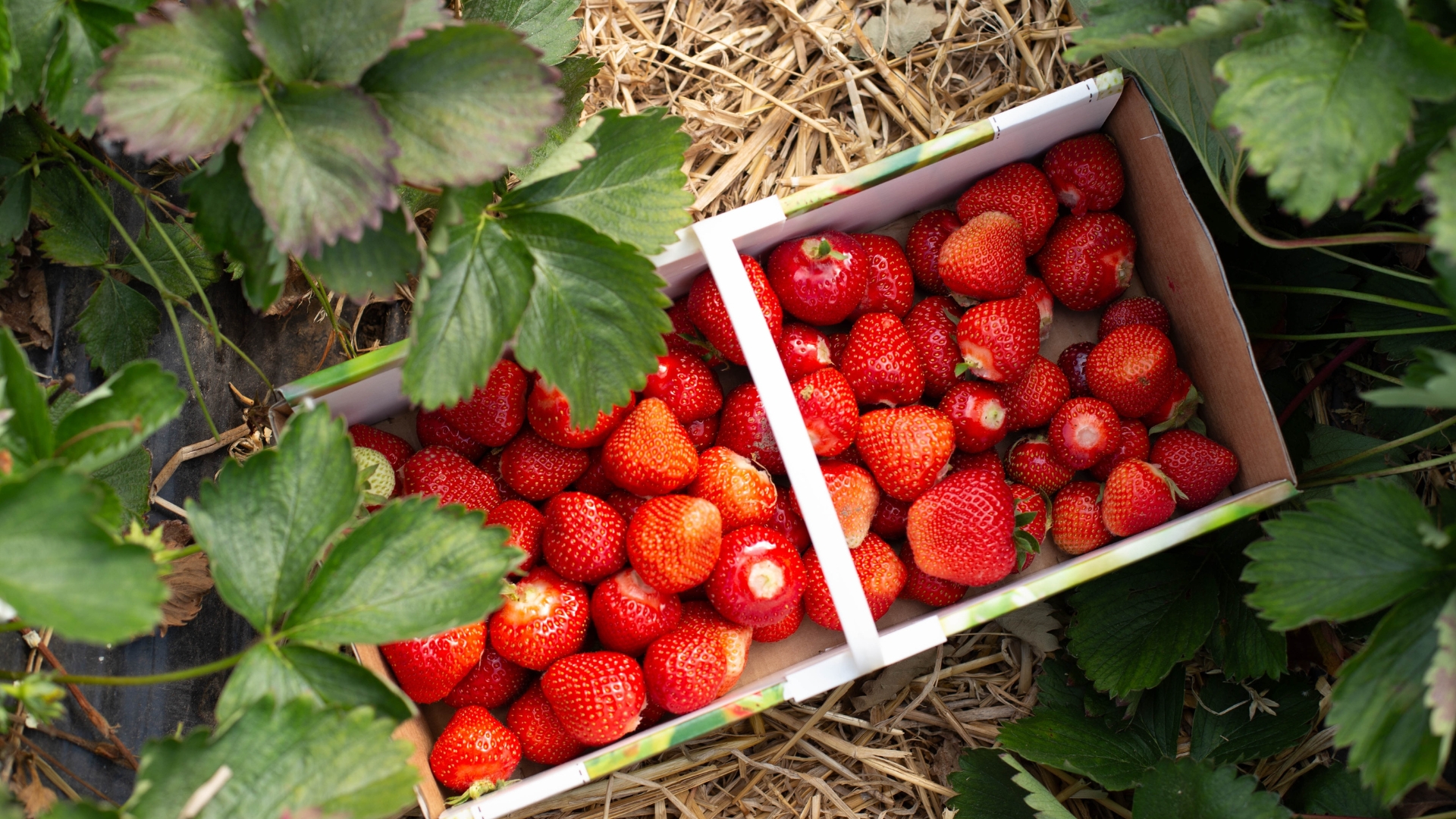
Michigan fruit growers know the challenge of keeping soft fruits safe from hungry birds, pests, and other wildlife.
Protecting your harvest means using smart strategies that guard your berries and peaches without harming nature. From simple barriers to natural repellents, there are plenty of ways to keep your fruits intact and tasty.
Let’s explore some easy tips to defend your garden and enjoy a fruitful season!
1. Bird Netting Installation
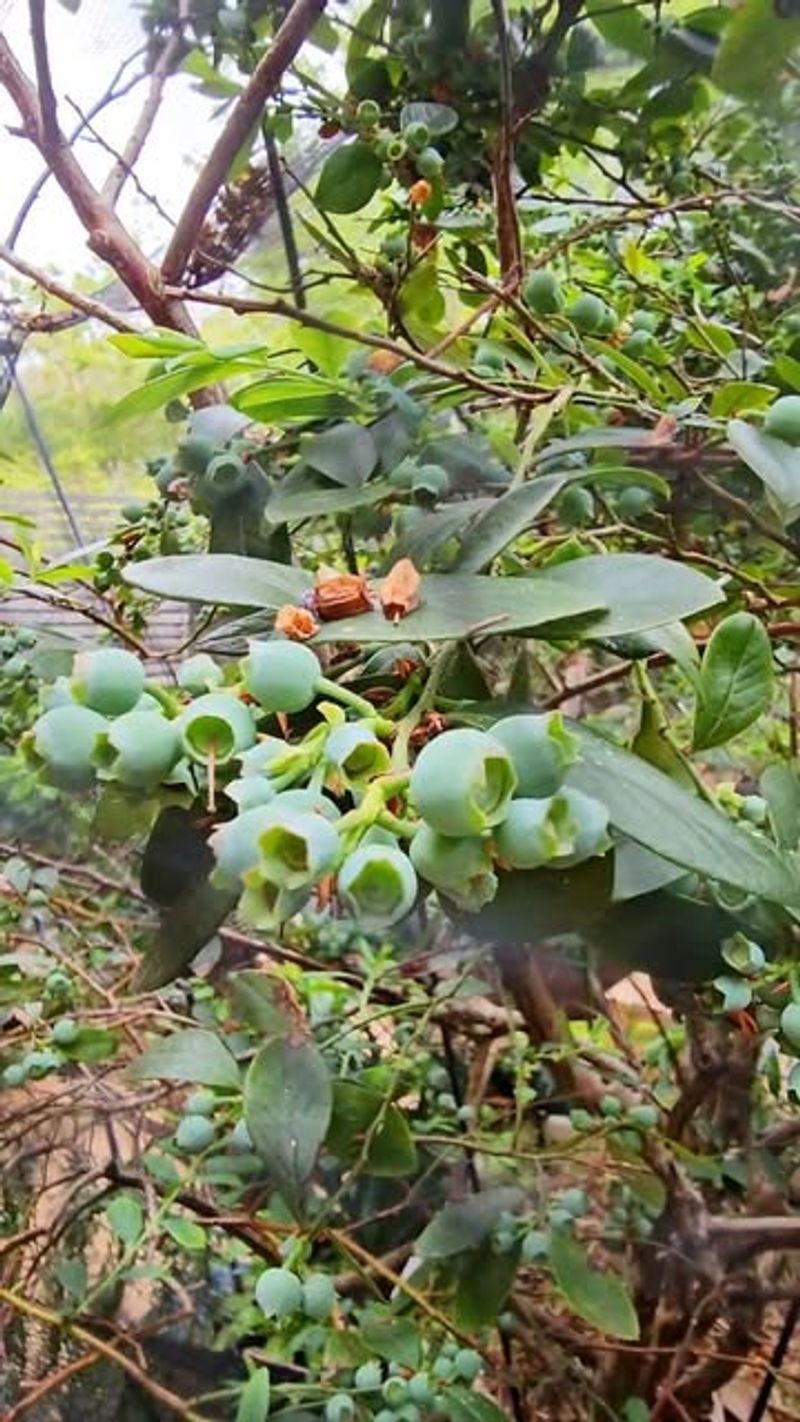
Lightweight mesh netting creates a physical barrier that keeps birds from reaching your precious berries. Michigan growers find this especially effective against robins and cedar waxwings that target ripening fruit.
Drape the netting over plants or create a frame system for easier access during harvest time. Make sure to secure edges to prevent clever birds from finding their way underneath.
2. Reflective Tape Deterrents
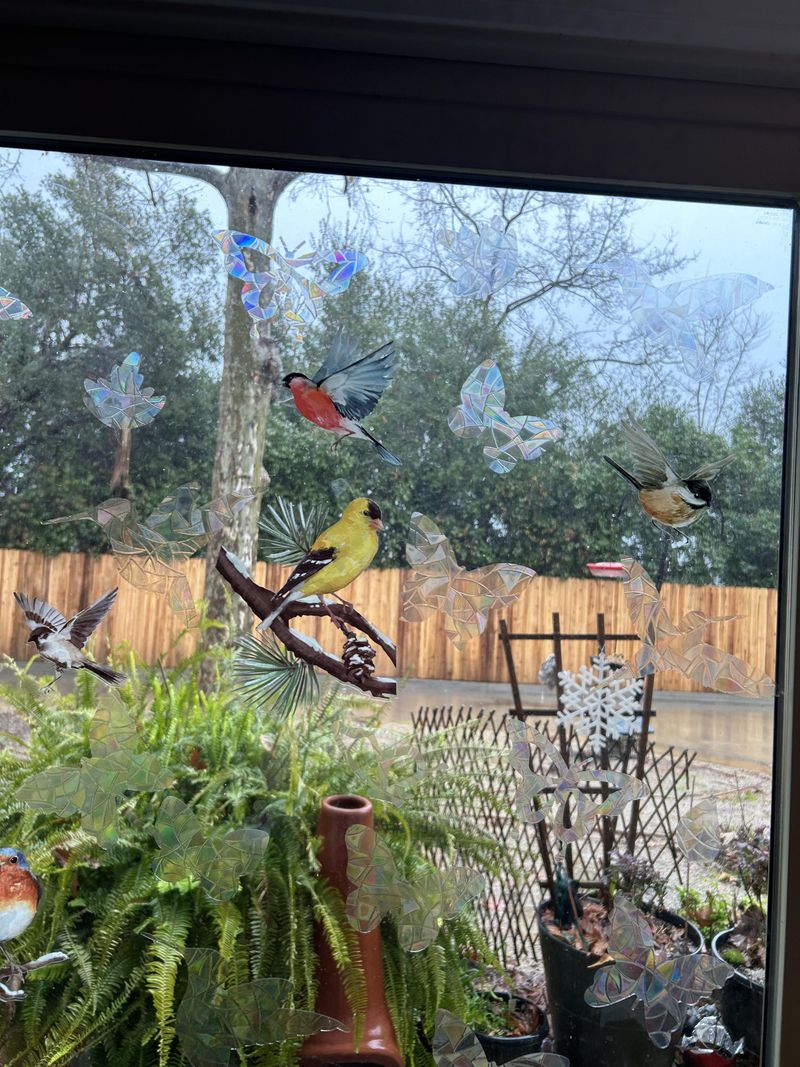
Shiny, reflective tape flutters in Michigan’s lake breezes, creating unpredictable flashes of light that startle birds. The movement and reflection confuse feathered visitors, keeping them away from your ripening treasures.
Hang strips every few feet around your garden. Replace periodically as Michigan’s weather can eventually dull the reflective surface, making it less effective at scaring away hungry birds.
3. Decoy Predators
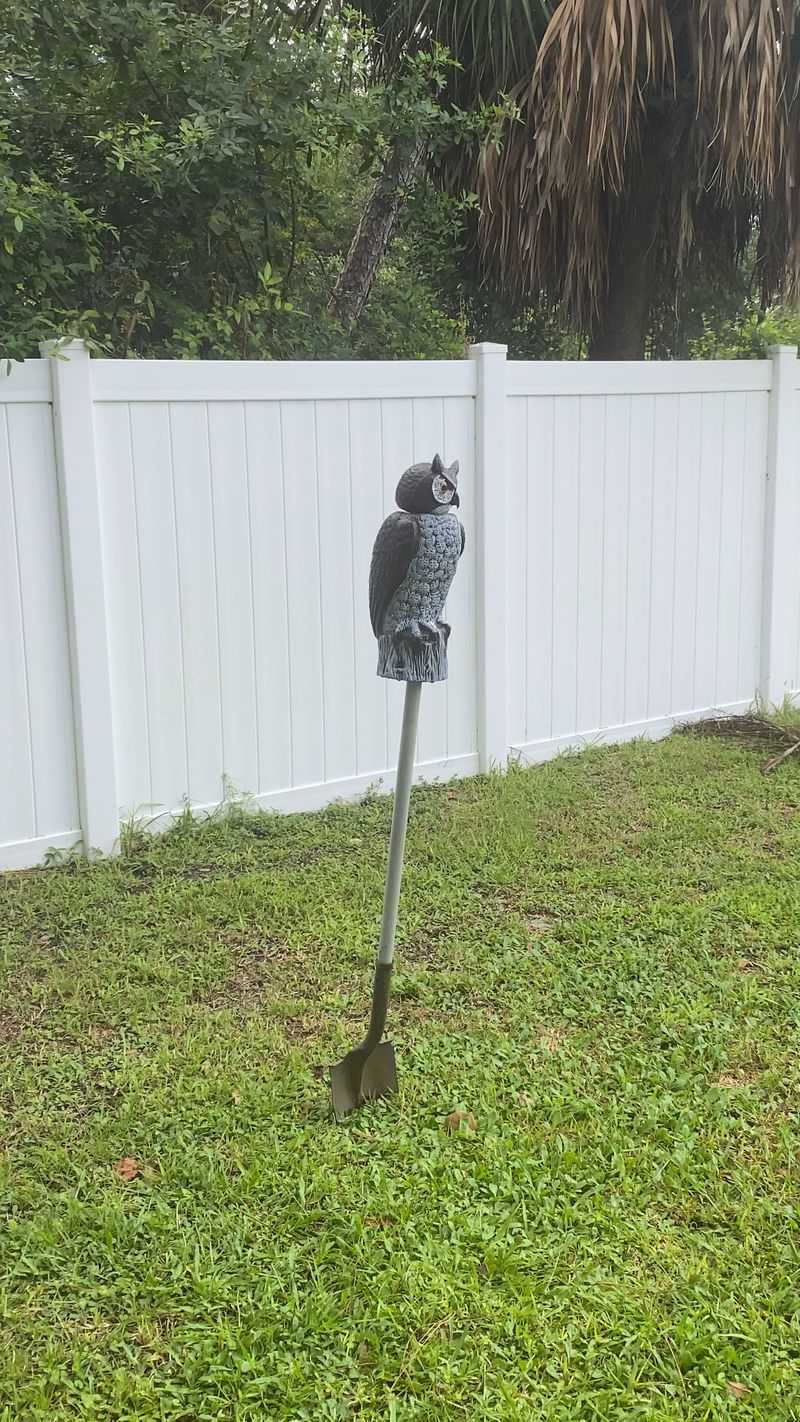
Plastic owls, hawks, or even rubber snakes strategically placed around your Michigan fruit patch create the illusion of danger. Birds instinctively avoid areas where predators lurk, keeping your berries safe from pecking beaks.
Move these decoys regularly to maintain effectiveness. Michigan gardeners report that stationary decoys quickly lose their deterrent power as birds realize they pose no actual threat.
4. Sound Deterrent Systems

Motion-activated devices emit predator calls or distress signals when wildlife approaches your Michigan berry patch. These unexpected sounds frighten birds and mammals without harming them, protecting your harvest naturally.
Consider your neighbors when positioning these devices in Michigan communities. Some systems allow scheduling to prevent nighttime activation, maintaining neighborly relationships while safeguarding your fruit.
5. Companion Planting Strategy

Certain aromatic plants naturally repel Michigan’s fruit-loving pests. Marigolds deter aphids and nematodes, while nasturtiums can confuse insects that might damage strawberries or raspberries.
Plant these companions around the perimeter of your Michigan fruit garden. The strong scents mask the sweet smell of ripening fruit, making it harder for pests to locate your berry treasures.
6. Floating Row Covers

Lightweight fabric barriers allow sunlight and water to reach plants while creating a physical shield against Michigan’s flying insects and birds. These covers are particularly effective against spotted wing drosophila, a serious threat to Michigan’s soft fruits.
Secure edges with soil or stakes to prevent wildlife from sneaking underneath. Remove temporarily during flowering if your Michigan fruits need pollination, then replace to protect developing fruit.
7. Electric Fencing Solutions

Low-voltage electric fencing creates an effective deterrent for Michigan’s larger fruit predators like raccoons and deer. The mild shock teaches animals to avoid your garden without causing harm, protecting your investment.
Install two fence strands for raccoons—one low, one higher—and taller configurations for deer common in Michigan woodlands. Solar-powered units work well in Michigan’s sunny summer months when fruits are ripening.
8. Natural Predator Attraction
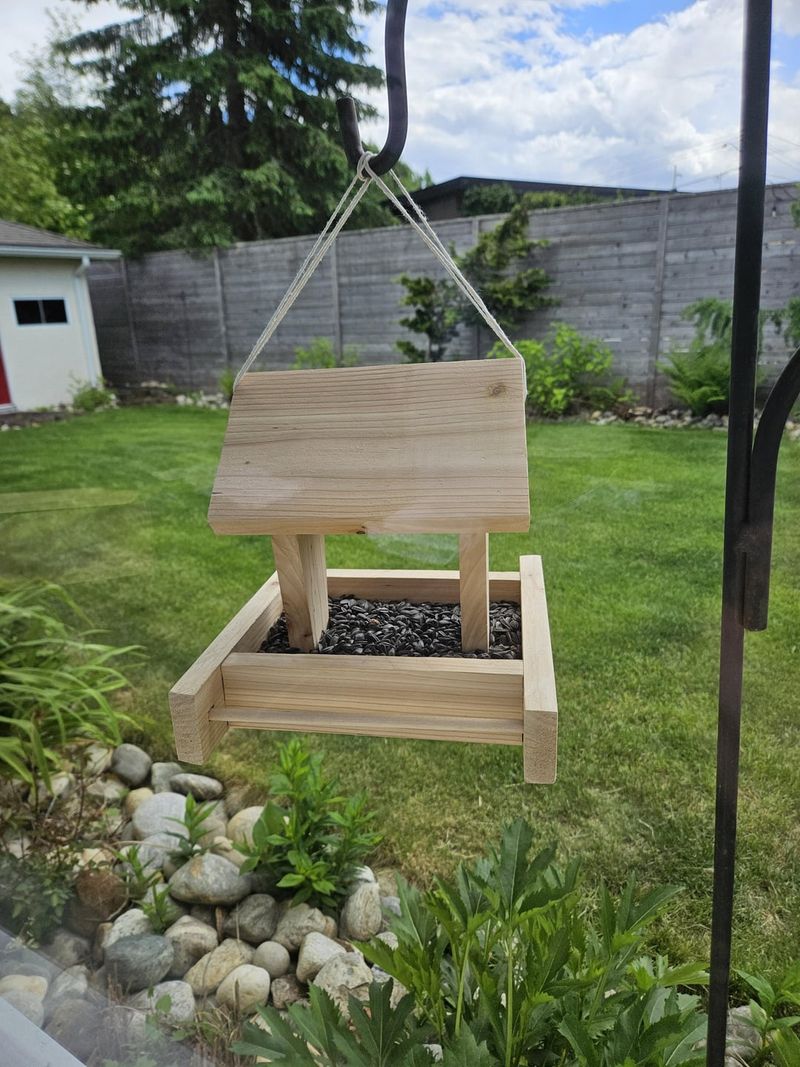
Installing bird houses for insect-eating species creates natural pest control in your Michigan fruit garden. Chickadees, bluebirds, and swallows consume insects that damage fruit, while generally leaving the fruit itself alone.
Position houses away from your most vulnerable fruits in your Michigan yard. Creating this balanced ecosystem helps control pests naturally, reducing the need for chemical interventions.
9. Fruit Bagging Technique
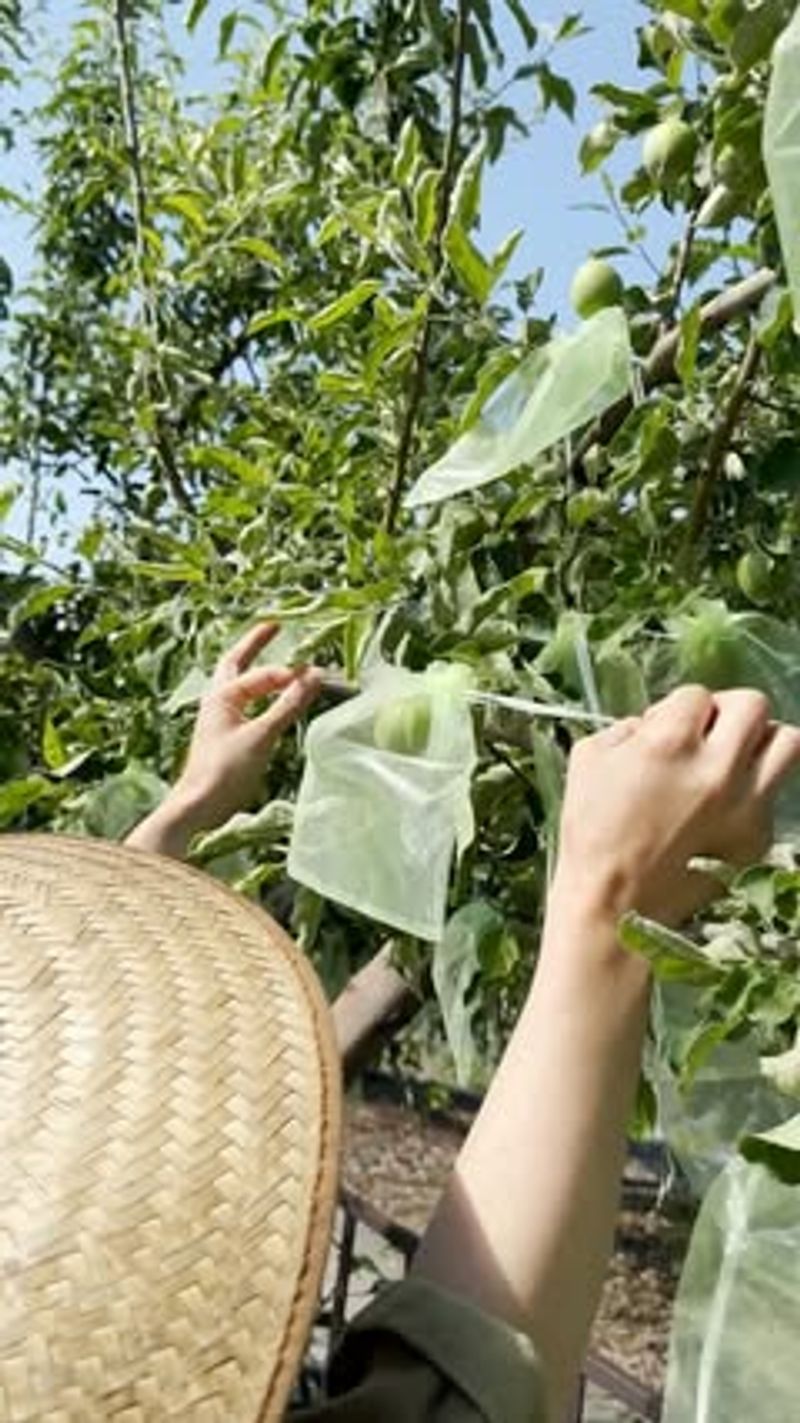
Individual fabric or paper bags placed around developing fruits create a physical barrier against Michigan’s persistent pests. This method works particularly well for larger fruits like peaches or apples but can be adapted for clustered berries.
Secure bags with twist ties or string after pollination occurs. Michigan gardeners find this labor-intensive method extremely effective for producing perfect specimen fruits without chemical sprays.
10. Sacrificial Border Plants

Planting extra berry bushes around the perimeter of your Michigan fruit garden creates a buffer zone. Birds and wildlife typically feed from the outermost plants first, leaving your main crop relatively untouched.
Choose the same varieties as your main crop for your Michigan garden border. This strategy acknowledges that some loss is inevitable but directs it away from your primary harvest area.
11. Automated Sprinkler Systems
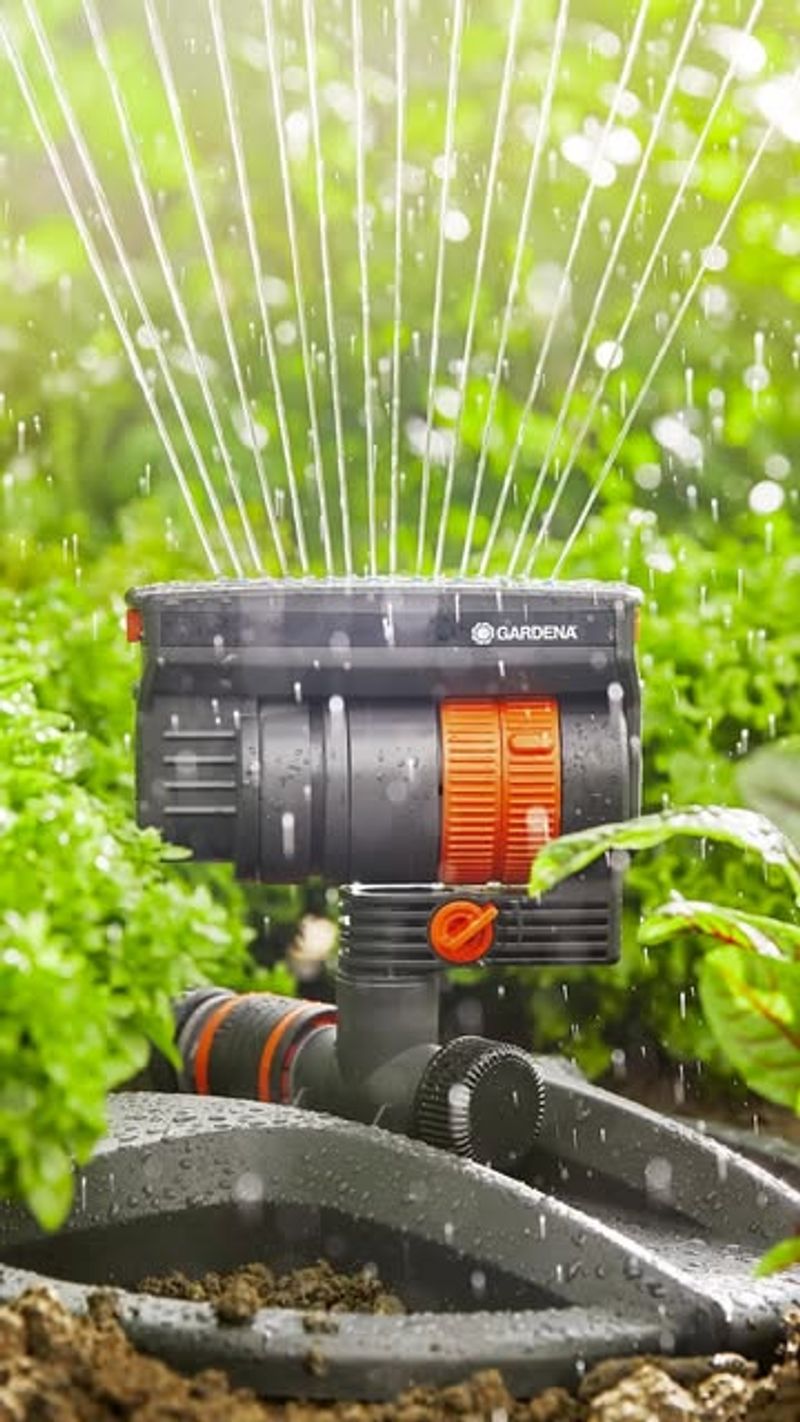
Motion-activated sprinklers deliver surprising bursts of water when animals approach your Michigan fruit garden. This harmless but startling deterrent teaches wildlife to avoid your growing area without causing injury.
Position sensors to detect entry from typical wildlife paths in your Michigan yard. The unexpected spray triggers animals’ instinctive fear response, conditioning them to seek easier meals elsewhere.
12. Strategic Harvest Timing
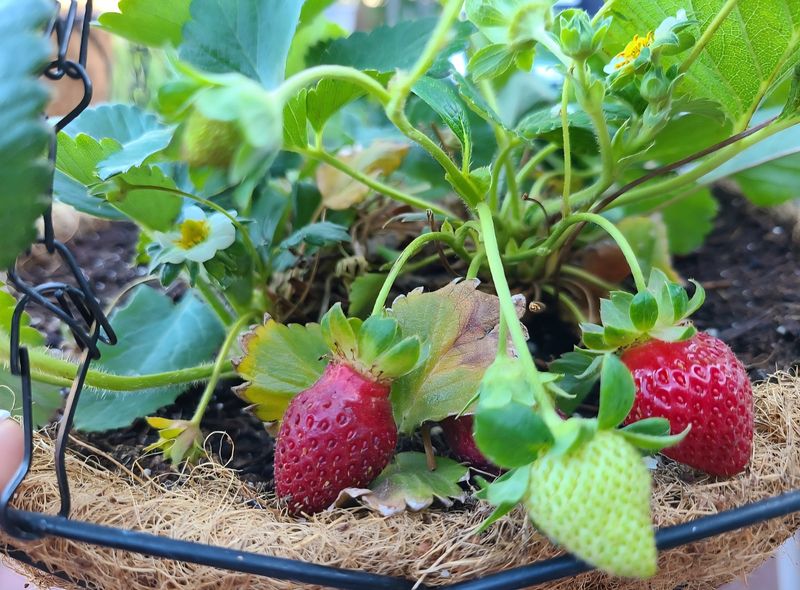
Picking fruits just before they reach peak ripeness can prevent losses in Michigan gardens. Slightly underripe berries will continue developing flavor indoors while avoiding the attention of wildlife that targets perfectly ripe fruit.
Michigan blueberries, for example, can be harvested when they first turn completely blue. They’ll develop sweetness off the bush, and you’ll beat the birds to your precious crop.
13. Organic Repellent Sprays
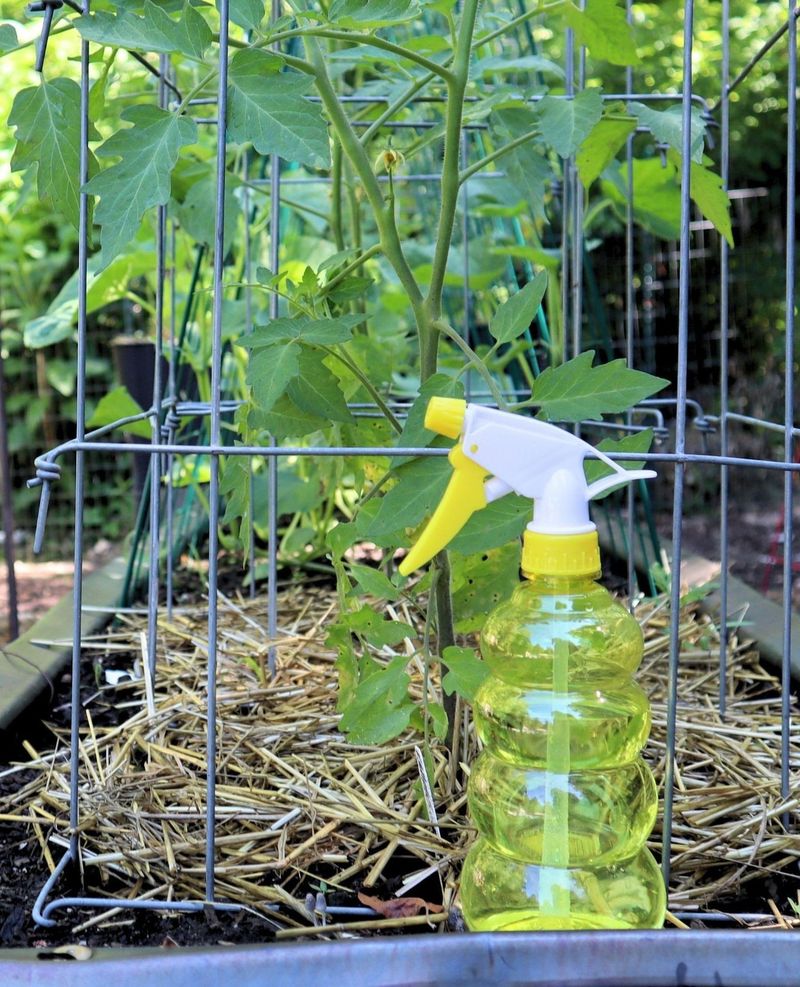
Natural concoctions using garlic, hot pepper, or predator urine create scent barriers that confuse or repel Michigan’s fruit-loving wildlife. These solutions need regular reapplication, especially after Michigan’s summer rainstorms.
Apply to plants surrounding your fruit rather than directly on edibles when possible. Michigan gardeners find these solutions particularly effective against smaller mammals like chipmunks and rabbits that might damage low-growing berries.
14. Physical Barriers Construction
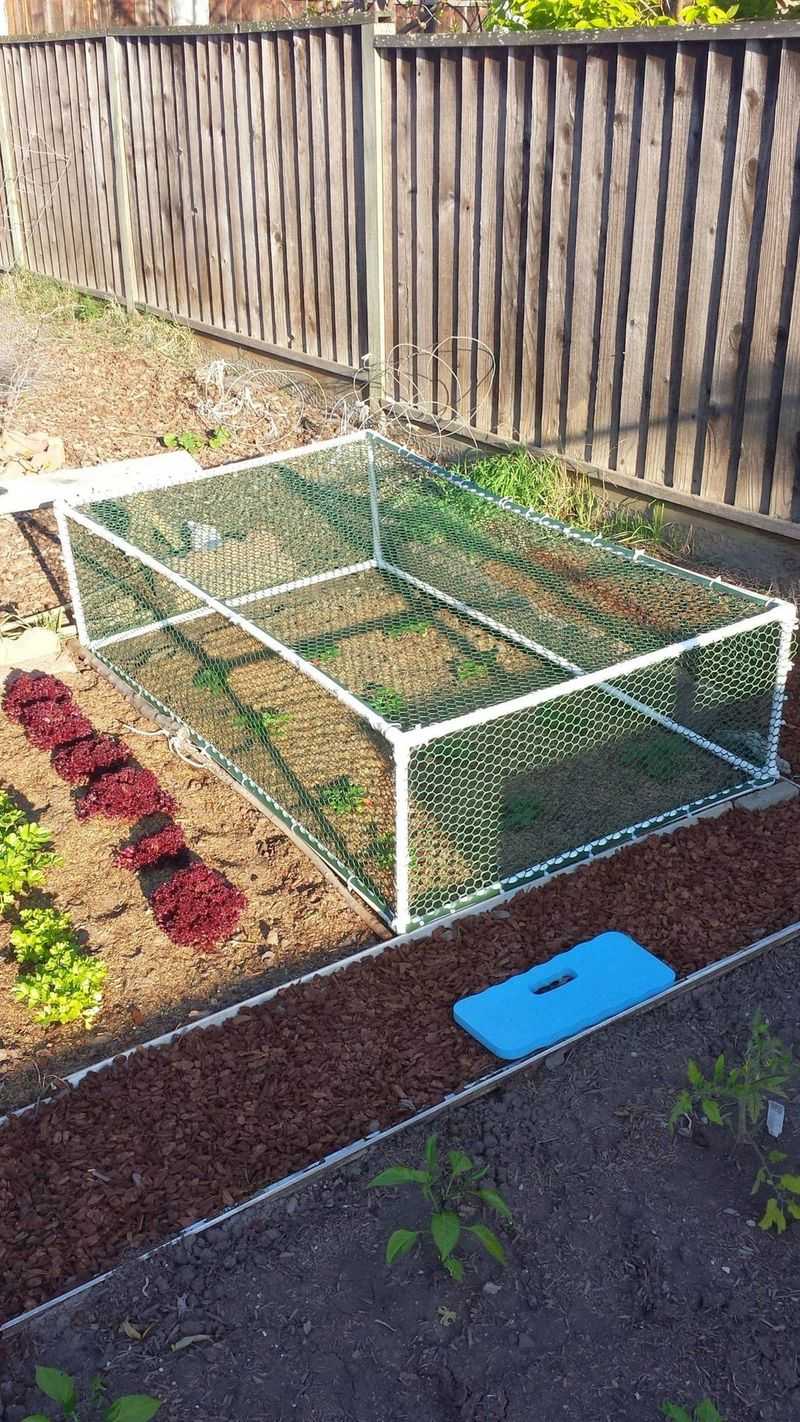
Sturdy enclosures combining mesh sides and top protection create fortress-like security for Michigan fruit gardens. These structures prevent access from birds above and rabbits or groundhogs from the sides.
Design with Michigan’s winter in mind, using materials that can withstand snow load if permanent. Creating a walk-in fruit cage allows easy access for maintenance while keeping persistent wildlife completely excluded.
15. Noise-making Devices
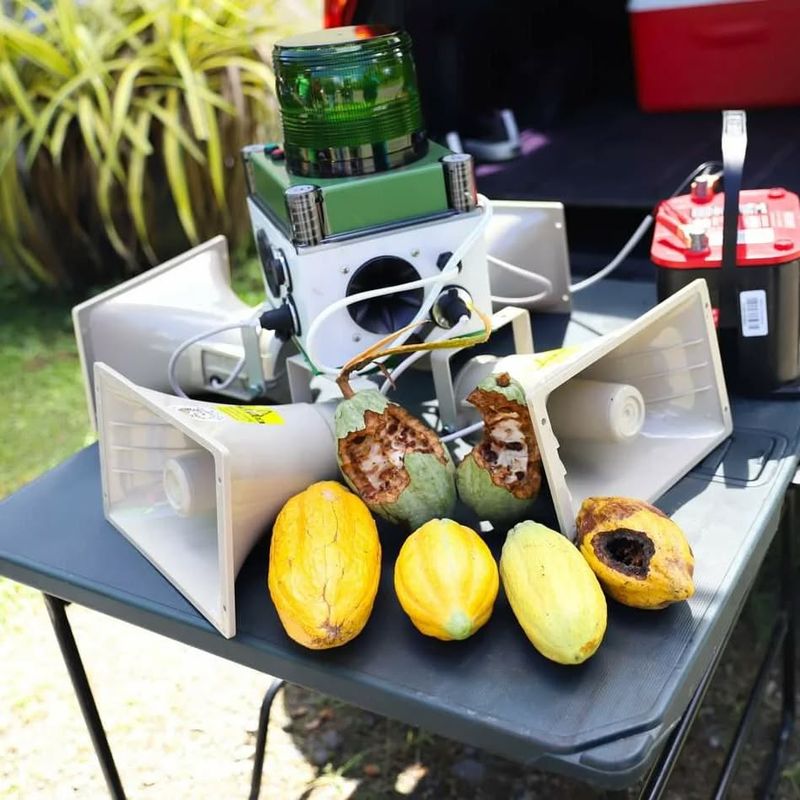
Wind chimes, aluminum pie plates, or commercial noise makers create unpredictable sounds that startle wildlife away from Michigan fruit gardens. The random nature of these noises prevents animals from becoming accustomed to them.
Rotate different noise-making devices throughout the Michigan growing season. What works initially may lose effectiveness as clever birds adapt, so having multiple options helps maintain protection.






